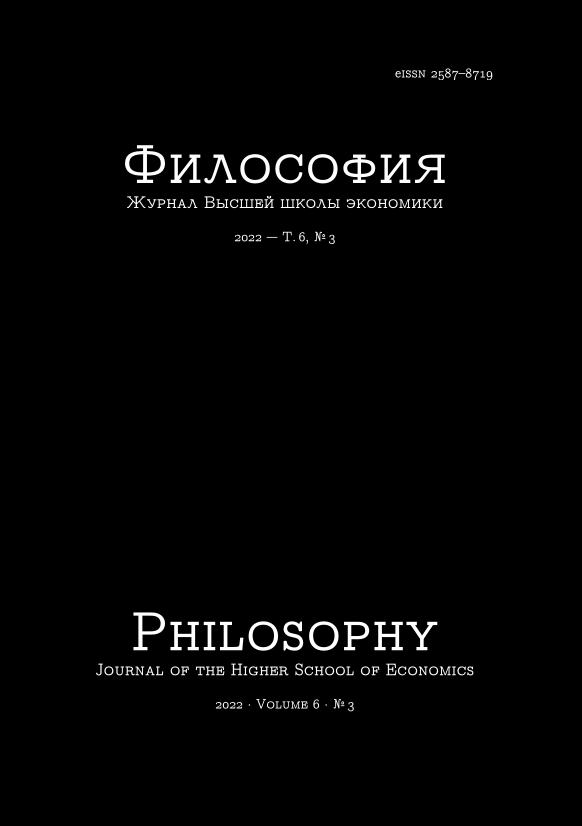Concerning the Problems of Applicability of Speech Acts Theory in Free Speech Discussions
On Some Examples of John Austin
Abstract
In discussions about possibility to deduce strict universal principles of freedom of speech, one of the important arguments against the “free speech absolutism” is considered to be the irreproducibility of a clear boundary between expression and action. Nevertheless, the speech acts theory, which exponentially connects utterance with action, is not used in philosophical argumentation as extensively as one might expect. The author seeks to reveal the boundaries of speech/action convergence concerning classical lectures of J. Austin “How to do Things with Words.” The article argues that plausible validity of consideration of speech as an action with certain consequences, intentions and goals is itself consistent with free speech arguments that an act described as a speech merely, could not be justifiably limited. The author proposes to distinguish such plots as (1) analysis of different linguistic formulas in terms of truth and success, (2) boundaries and criteria for conventional redescription of speech-using actions as typical (promise, oath) (3) consideration of speech as a powerful social resource, which should be granted justly (4) causal effect, which act of utterance may have. From the author's point of view, these plots are not still summed up in any basic argument against the “free speech absolutism”, relevant to contemporary defense of freedom of speech. The basic moves of J.L. Austin's theory are not enough to consolidate a practical conviction about the inseparability of words and actions, which significantly undermines hopes for strict adherence to the ideal of freedom of speech.
Downloads
Copyright (c) 2022 Philosophy. Journal of the Higher School of Economics

This work is licensed under a Creative Commons Attribution-NonCommercial 4.0 International License.






